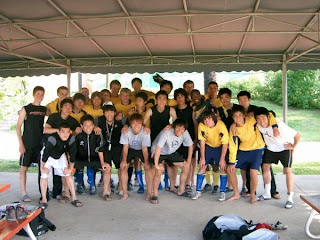I would have to say that this book definately reminds me of a incident or incidents where it was similar to the Sawi and Don Richardson mission. Although my incident had nothing to do with religion, it did in fact have something to do with cultural issues and backgrounds. Not long ago, I knew a girl who was not exactly what you would call "the same" as me. Although we were completely different people, we knew how to set differences aside and simply have a fun time without getting into needless debates about what we thought about something. Furthurmore, we actually had a alot of things that we agreed on; passions, dislikes, ideas and etc. Once this "getting to know" phase turned up a notch, it became more of a relationship. Meanwhile we actually began to tell each other things; things that we wondered about, expressing these differences that we had; our culture. Up to this point, I was beginning to wonder if we were different because it seemed like we agreed on so much, despite the "occasional" arguments. Eventually this relationship became clear and actually seemed like we fell for each other, hiding our weaknesses and differences into the foggy mist. Although it seemed like the affection was beginning to skew in one direction; me sacrificing everything I had for her while she was only giving it half as much. Differences did not matter to me, what I thought was love seemed to be enough and make a relationship last. It wasn't that she didn't show that same love back and was just a lie, it was simply that I was being too good to her up to a point where she felt uncomfortable. None of this showed of course and was revealed only after all of this happened. By this time at least a few months had passed and it wasn't just some random relationship but even our environment recognized that feelings we had for each other. Highschool love may sound a little silly to some, while adults may doubt that teenagers know what love is; but I was sure this was love. What sounded cheesy and so perfect later came to a downfall just as any fairytale does; we broke up, more specifically, she broke up with me. For what reason? She fell for another guy. This gave me a final realization that we were different and what I thought changed and didn't matter did. The reason I am telling you this anecdote isn't to express my cheesy feelings for her, nor is it to make what happened public for people to judge her or myself, it is simply to make a connection with the daily things that happen all around this world. We need to admit that until we overcome these differences for eternity, peace or love will never last and will always have a end. Peace Child gives us the same message.




